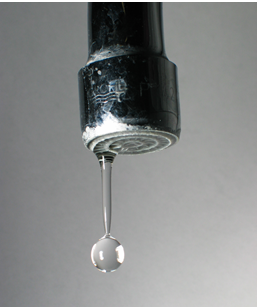The recent controversy
over lead levels in the drinking water of Flint, Michigan residents has once
again drawn national attention to the danger lead exposure poses, especially to
young children.
 |
Image
Source: Wikimedia
commons
|
According to the CDC,
“no safe blood lead level in children has been identified. Lead exposure can
affect nearly every system in the body… [but because] lead exposure often occurs
with no obvious symptoms, it frequently goes unrecognized.”
A recent New York Times (NYT) article
on lead exposure and lead poisoning further explained, “even low levels of lead
in blood can have profound effects on the brain and nervous system. Lower
intelligence, difficulty in paying attention and with fine motor skills, and
lower academic achievement have all been connected to elevated lead levels.”
According
to the article, calcium, iron, and vitamin C intake may all help to slow lead
absorption, but to date, there is no way to reverse the effects of lead
poisoning. For that reason, medical professionals emphasize the importance of
lead exposure prevention.
To learn more
about lead exposure, including common sources of lead exposure and how to
detect it, click here
to read the full NYT article.
